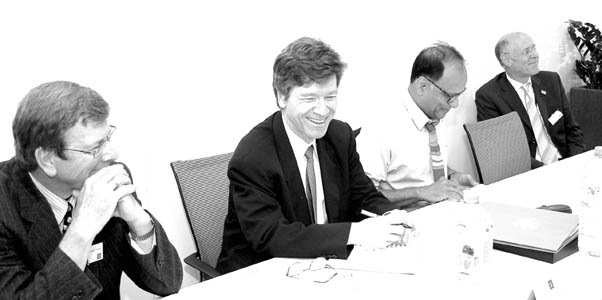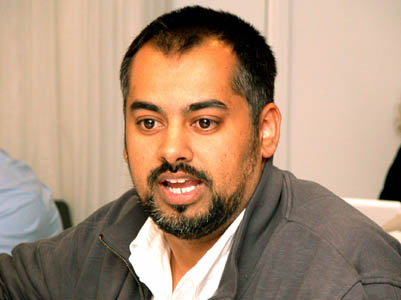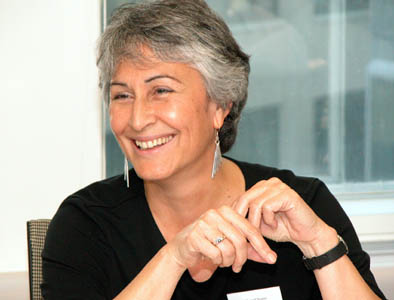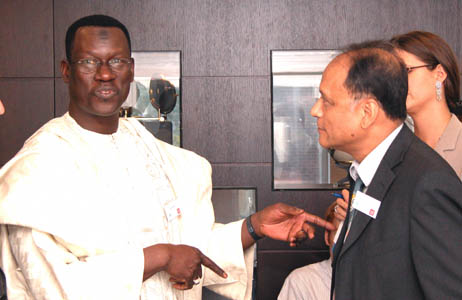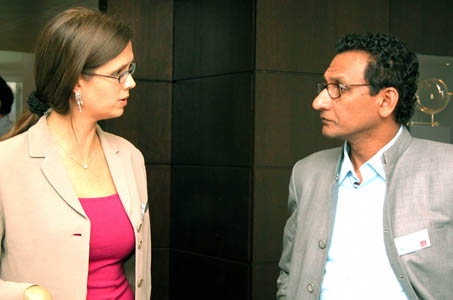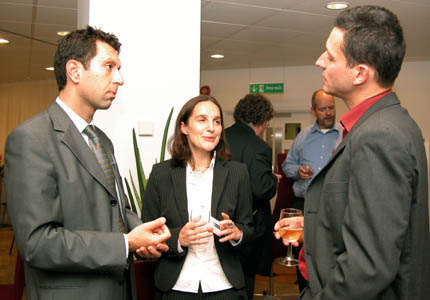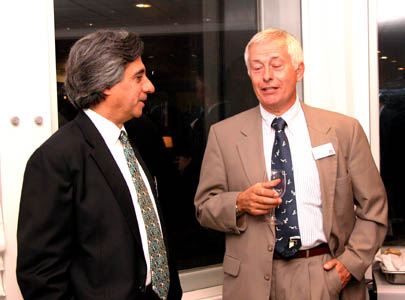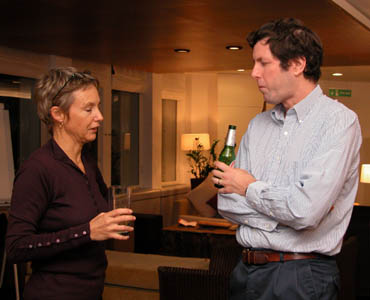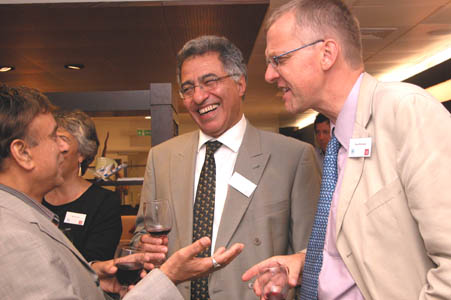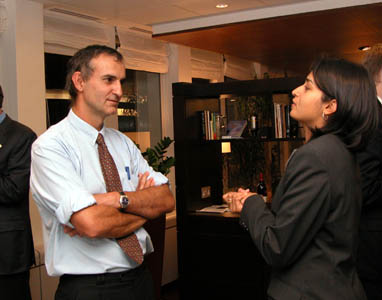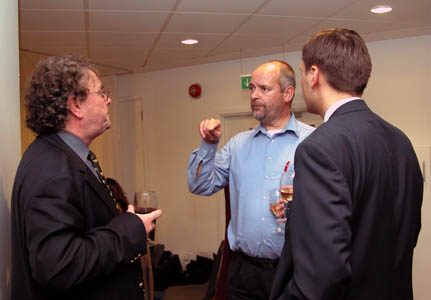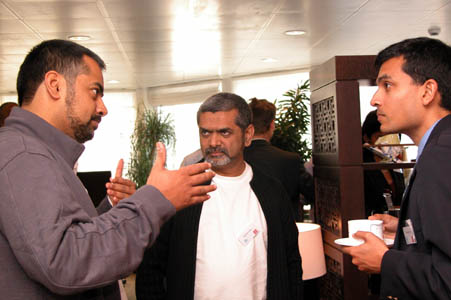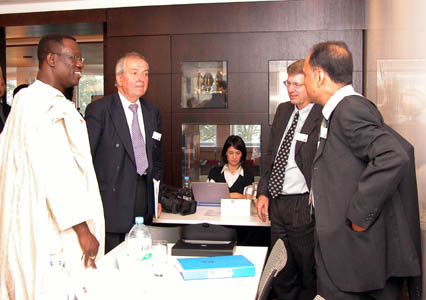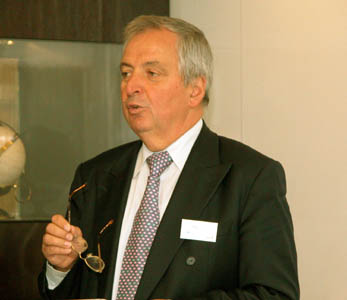|
|
OPENING
SESSION:
|
|
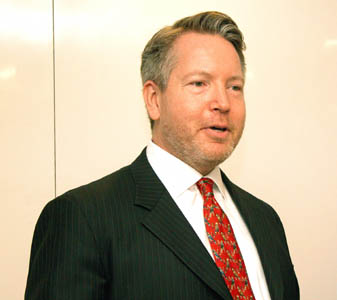
|
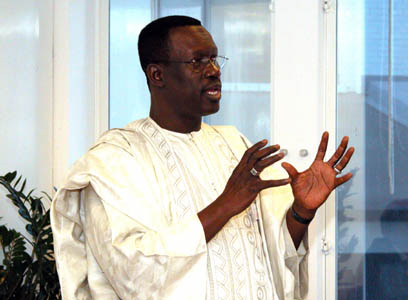
|

|
|
|
|
|
Lewis
Pinault, Managing Director, The Box (EDS Innovation at
LSE),
welcomed participants to the LSE facilities and wished them
fruitful discussions.
|
Bakary
Kante, Director of UNEP Division of Environmental
Conventions (DEC), welcomed participants, and highlighted the need
to create markets for ecosystem services that can benefit the
poor. He indicated that Multilateral Environmental Agreements
(MEAs), as international legally binding
instruments, can be a useful tool in ensuring this, and
recommended to focus on four areas: carbon sequestration,
landscape beauty, biodiversity and water. |
Klaus Töpfer, UNEP Executive Director,
stressed the importance of the Milennium Ecosystem Assessment
(MA) in indicating the status of ecosystems
services.
He
expressed UNEP’s commitment
to creating pro-poor markets for ecosystem
services, and asked participants for advice on how UNEP
can take this initiative further. |
|
|
|
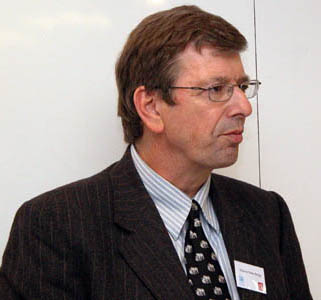
|
Pro-Poor
Markets for Ecosystem Services – Critical Issues,
Opportunities and Constraints for MEAs:
Charles
Perrings,
(left) President of the International Society for Ecological
Economics, chaired the first segment of the workshop, focusing
on the critical issues, opportunities and constraints for MEAs
in creating pro-poor markets for ecosystem services. Chair
Perrings indicated that the MA provided a means to quantify
changes to the physical availability of services and the value
of ecosystems.
|
|
|
|
|
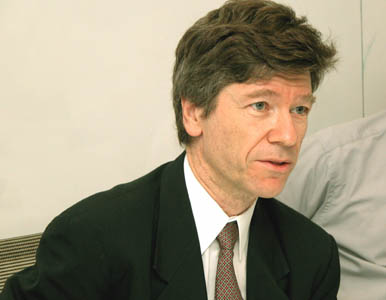
|
MDGs
and Ecosystem Services:
Jeffery
Sachs, (left) Director of the Earth Institute at Columbia
University
and Special Advisor to the UN Secretary-General, made a
keynote presentation on the MDGs and ecosystem services. He
highlighted the scientific, ecological, economic and
institutional complexity and uncertainty characterizing
ecosystem services, and the failure of market systems that do
not adequately address ecological challenges. Stressing that
market failures are not necessarily solved through market
solutions, he defined market mechanisms as decentralized
transactions, distinguishing them from other economic
instruments, such as regulatory or corrective compensation and
incentive mechanisms. He noted that environmental goods can be
addressed through redefinition of property rights, corrective
taxation, subsidies, individual transferable quotas, zoning
and other regulatory frameworks, and their success depends on
the accuracy of the underlying ecological modeling and its
susceptibility to correction. |
|
|
|
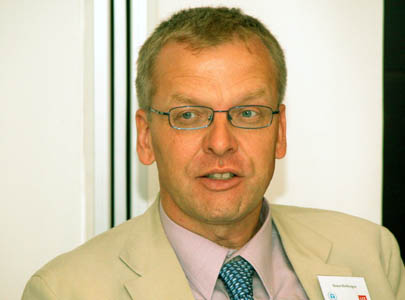
|
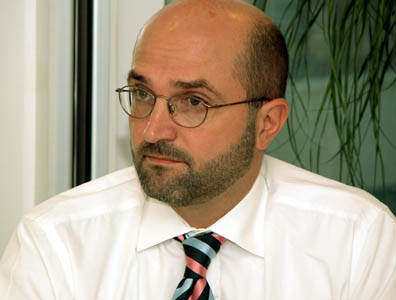
|
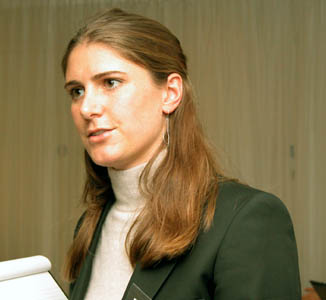
|
|
|
|
In
the ensuing discussion, Gabriel Labbate, UNEP,
highlighted the difficulty in combining donors’ short-term
timeframes and the intergenerational dimension of
environmental issues. Simon Rietbergen, the World
Conservation Union (IUCN), emphasized country-level dialogue,
particularly with the Ministries of Environment and Finance. Amanda
Hawn, The Ecosystem Marketplace, raised the issue of social
rate of return and win-win solutions.
Above photos L-R: Simon
Rietbergen, IUCN; Gabriel
Labbate, UNEP and Amanda
Hawn, The Ecosystem Marketplace |
|
|
|
Discounting
ecosystem losses:
Partha Dasgupta, (right) Professor of Economics, University
of
Cambridge, suggested taking into account four classes of capital:
manufacturing; human capital/skills formation; knowledge; and
natural capital. He defined ecosystems
as capital assets, noting that damages are frequently
irreversible and ecological processes are overwhelmingly
nonlinear, so
that an ecosystem can collapse abruptly,
without much prior warning. He highlighted how higher
growth rates would not include
natural capital, which may increase the productive base of
countries. |
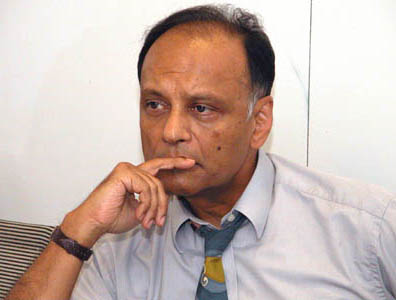
|
|
|
|
|
|
|
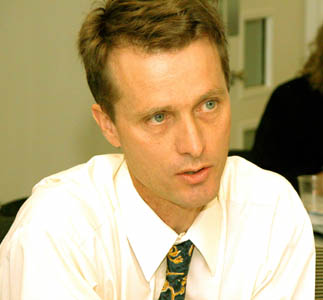
|
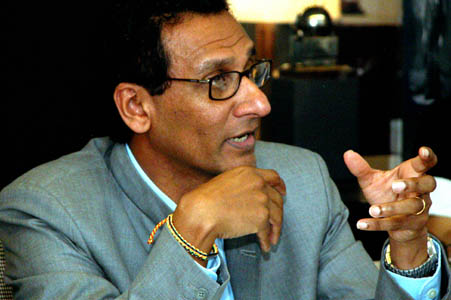
|

|
In
the ensuing discussion, Robert
Hepworth, Executive Secretary of the Convention on the
Conservation of Migratory Species of Wild Animals (CMS),
enquired about nonlinear ecological processes. Referring to the
examples of fisheries and freshwater lakes, Dasgupta
suggested the use of sensitivity analysis looking at ranges of
key commodities that may provide unambiguous responses, to guide
decision making in situations of uncertainty. Charles
Arden-Clarke, UNEP, asked about best practices at the
national level and possible scaling up at the international
level. Dasgupta noted the absence of studies at the
national level, and the relevant work of the World Bank in this
area. Anantha Duraiappah, International Institute on
Sustainable Development (IISD), raised the issue of valuing and pricing
multiple services.
Above photos L-R: Charles
Arden-Clarke, UNEP; Anantha
Duraiappah, IISD and Robert
Hepworth, Executive Secretary, CMS
|
|
|
|
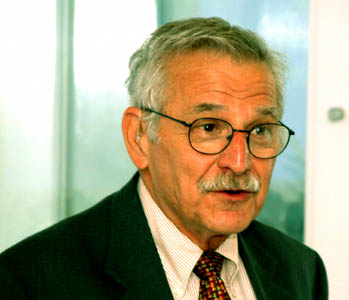
|
MA,
MEAs and ecosystem services:
Hal
Mooney, (left) Co-Chair of the Millennium Ecosystem
Assessment (MA), made a presentation on the link between the MA,
MEAs and ecosystem services. He recalled that the MA focused on
ecosystem goods and services, their sustainability and human
wellbeing, emphasizing that the consequences of ecosystem
changes for human wellbeing provide a link with the MDGs. He
praised the MA for explicitly engaging MEAs in the assessment
process, bringing together the environmental and the business
community, and forming new coalitions among scientists and the
development community. He explained that the term “ecosystem
services” is actually linked to valuing services, rather than
pricing them, as feared by some countries that objected to this
concept.
|
|
|
|
|
|
In the ensuing
discussion, Marceil
Yeater, Secretariat of the Convention on International Trade in
Endangered Species (CITES), enquired about the need to invest in
research and to build capacity. Bakary
Kante, Director, UNEP/DEC,
called for concrete suggestions on possible pilot projects in the four
sectors of biodiversity, carbon, landscape and water. Stressing that
the South African and Costa Rican
projects were government-funded, Mooney raised the question of
finding financial resources for other projects.
Ahmed
Khan, South Africa, reported on how the
government-funded Working for Water Programme on alien plant species
gradually integrated other activities on wetlands and fire
management.
Above photos L-R: Ahmed
Khan, South Africa; Marceil Yeater, CITES and
Bakary
Kante, Director, UNEP/DEC in discussion with Partha Dasgupta,
Professor of Economics,
University
of
Cambridge
|
|
|
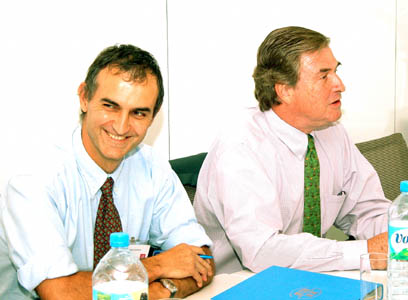
|
Panel discussion on experiences from the field:
John Forgάch,
(left photo right) Chairman of ForestRe, highlighted the interest of corporations in environmentally sound production, emphasizing the necessity to cooperate with the private sector and
utilize private funding for the environment. He presented the case of the Panama Canal, in which financial markets were used to arrange for companies dependent on the canal, to pay for reforestation through an insurance deal.
Alain Lambert, (left photo left) Founder and Chairman of the Conservation Finance Alliance and Conservation Finance Expert of UNEP Division of the Global
Environment Facility (GEF), recommended clarifying the definition of beneficiaries and direct and indirect users of ecosystem services. He highlighted the
negative impact of bad governance on providing ecosystem services.
|
|
|
|
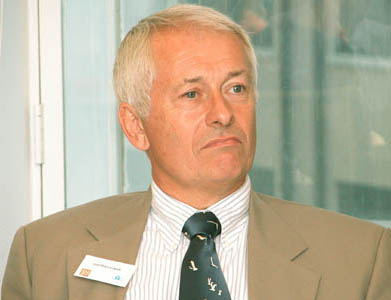
|
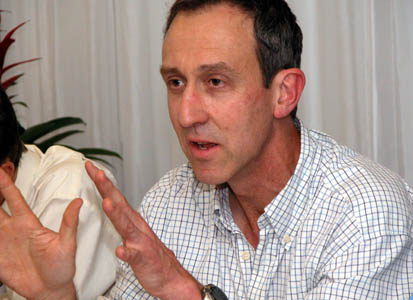
|
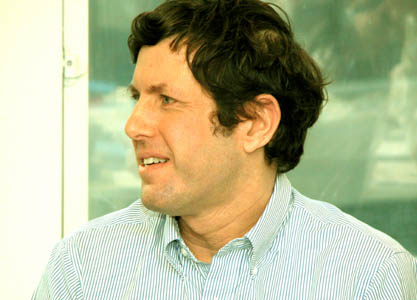
|
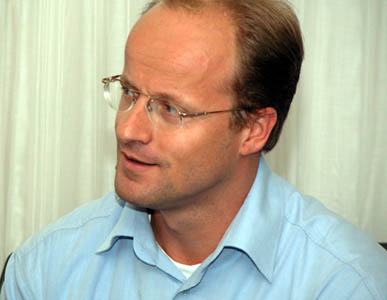
|
|
|
|
|
In the following discussion, Steve Polasky, University of
Minnesota, enquired about the need for private goods in attracting private financing.
Forgách replied that the private sector is willing to fund projects on public goods, reporting that in the case of the Panama Canal the intervention of the government followed the initiative of the private sector. He highlighted the importance of the government's
willingness to use a conservation trust or other compensation mechanisms.
Ivan Bond, International Institute for Environment and Development
(IIED), enquired whether public and private finance models can converge and require the same scientific input.
Erwin Bulte, UN Food and Agricultural Organization (FAO), reported on FAO research project on agro-ecosystems services, highlighting water and health components and a system of incentives including capacity building.
Jeff Sayer, World Wildlife Fund (WWF), stressed the difficulty in achieving payments for ecosystem services in the poorest countries.
Above photos L-R: Jeff
Sayer, WWF; Ivan
Bond, IIED; Steve
Polasky, University of Minnesota and Erwin
Bulte, FAO |
|
|
|
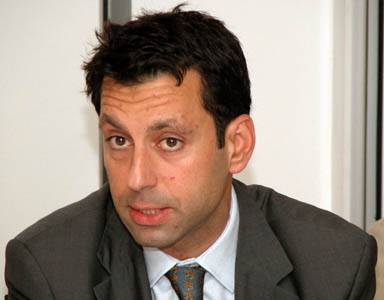
|
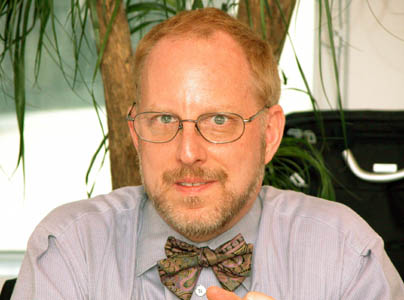
|
|
|
| Kaveh
Zahedi,(above left) UNEP/World Conservation Monitoring
Centre (WCMC), enquired about drivers for action and change, and
Forgách replied that it is a question of leadership, emphasizing the need to find a common ground for the private and public sectors. He recommended that the public sector concentrate on governance and
the private sector on banking.
Leonard Hirsch, (above right) Smithsonian Institution, wondered whether individuals or the community as a whole should pay for each
ecosystem service, underscoring the need to ensure that all countries have access and can tap into the ecosystem services market.
Lambert specified that services should be charged if the good is being over-used. |
|
|
|
ENB SNAPSHOTS: Cocktails hosted
by Klaus Töpfer, Executive Director, UNEP
|
|
|
|
|
|
ENB SNAPSHOTS: UNEP Press
conference held at LSE
|
|
|
|
|
Above photos L-R: Bakary
Kante, Director, UNEP/DEC, Klaus Töpfer, UNEP Executive Director, Charles
Perrings,
President of the International Society for Ecological Economics and
Partha Dasgupta,
Professor of Economics, University
of
Cambridge; Klaus Töpfer, UNEP Executive Director, during
the High-Level
Brainstorming Workshop
“Creating Pro-Poor Markets for Ecosystem
Services” press conference.
In
the accompanying UNEP Press release Töpfer
said, “By continually depleting and damaging it [the environment] and without investment in the running, maintenance and management costs, the Earth’s life support can suddenly and abruptly fade or switch to become less productive and unpredictable. I believe we are slowly winning this political and economic argument but not fast enough. So we must hurry up, otherwise all 6 billion of us will eventually be scratching around trying to
survive.”
|
|
|
|
|


